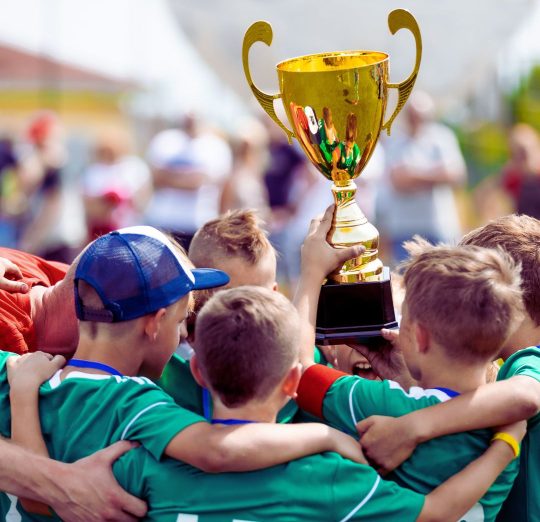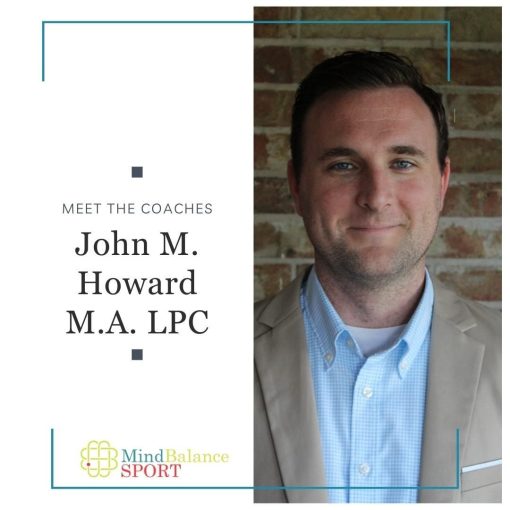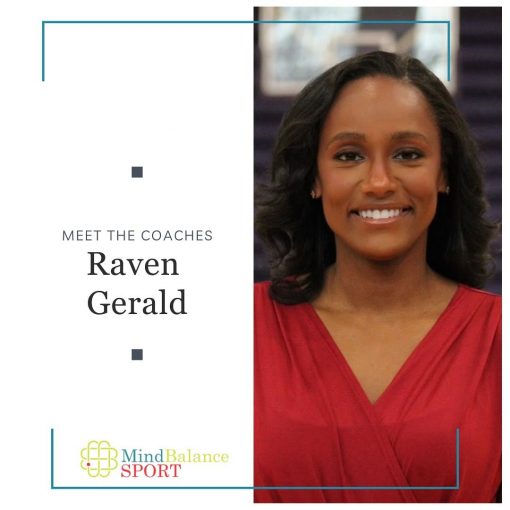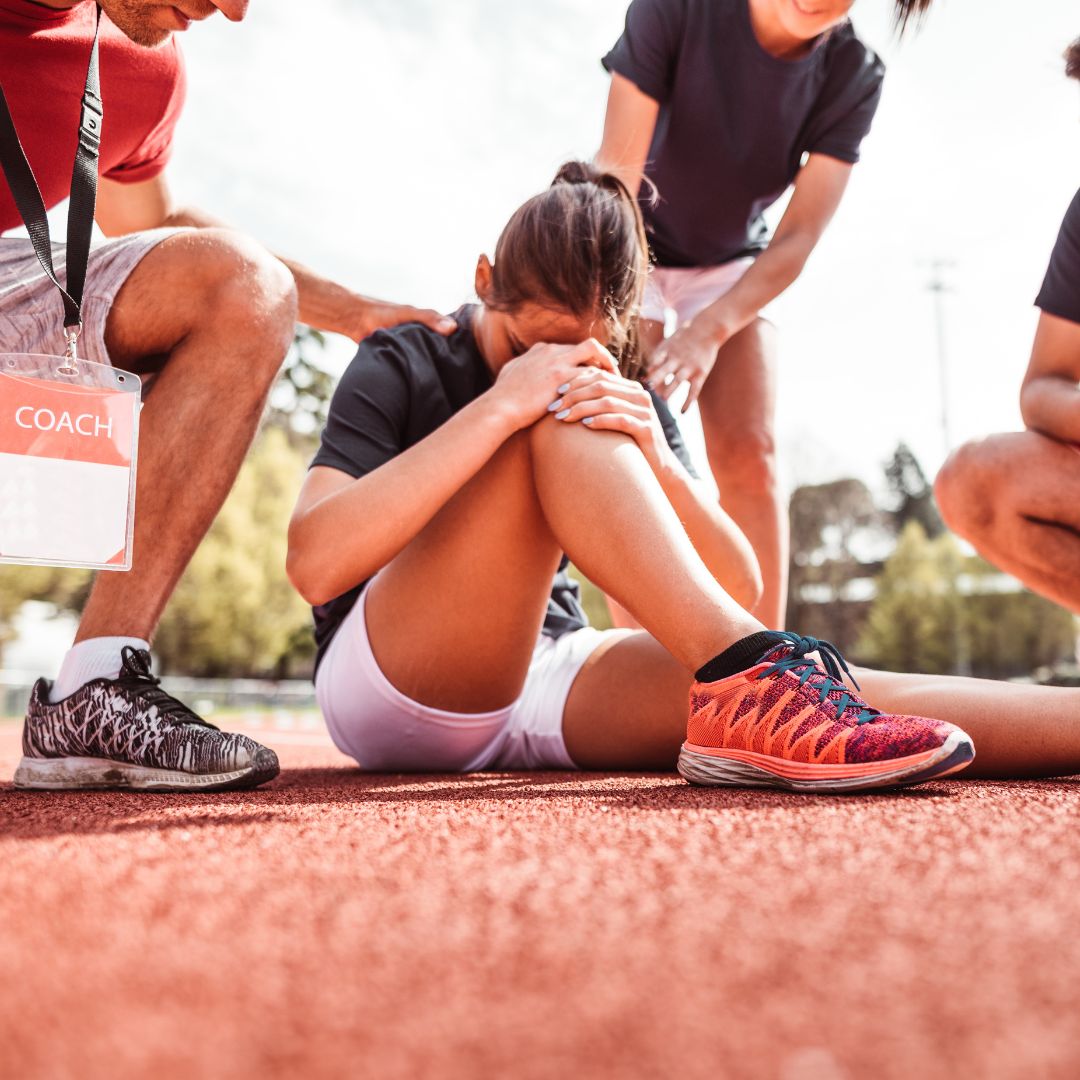Sports Psychologist in Tysons, VA
You want to work on your mental game, but how do you train your brain?
At MindBalanceSPORT, We Train The Other Half Of The Athlete.
You want to work on your mental game, but how do you train your brain?
Mental training does not get much media attention, but at MindBalanceSPORT we know it is a game changer. The mental skills you will learn at MindBalanceSPORT are generalizable in the classroom, in sport and in life!
We know that mental skills can be successfully taught, even at an early age.

Our Services
Meet the Team





testimonials
Athlete Stories: Real Comebacks, Real Results

Emma, a high school basketball player, tore her ACL in the middle of her junior season. After surgery, she struggled with self-doubt and fear every time she stepped back on the court. Through sport psychology training, she learned visualization techniques and confidence-building exercises that helped her regain trust in her knee. When she returned for her senior season, she didn’t just play—she led her team to the playoffs.

Carlos, a soccer player, suffered a stress fracture in his foot and had to miss half of his season. Sitting out was mentally tougher than the pain itself. We worked on mental engagement strategies to keep him sharp—studying game film, setting small rehab goals, and using mental imagery to stay ready. When he was finally cleared, his confidence never wavered.

Jordan, a track athlete, strained her hamstring before a major competition. She feared losing speed and falling behind competitors. Instead of focusing on what she couldn’t do, we redirected her energy toward mental preparation, using self-talk and goal setting to keep her confidence strong. When she returned, she set a new personal record.
EXCELLENTTrustindex verifies that the original source of the review is Google. It was a great help to my 14-year-old competitive volleyball player daughter. Raven was great to understand and connect with her from start to end. We will continue with our sessions as needed.Trustindex verifies that the original source of the review is Google. Great results! I’ve loved working with Paula. Our sessions have greatly improved both the physical and mental aspects of my tennis game. I’m playing better and having more fun! Highly recommend!Trustindex verifies that the original source of the review is Google. Our family had a wonderful experience with Paula Castro. We needed some additional confidence in a particular area/sport and Paula helped get us there. We know who to turn to if we need help again. She’s been a Blessing. Thank you, Paula!Trustindex verifies that the original source of the review is Google. I highly recommend MindBalanceSPORT. Our son works with John Howard. John is very caring, positive, and effective at working with teenagers. John is an adept listener and created an individualized plan tailored to our son’s personality. After just a few sessions with John, we noticed a significant improvement in our son’s motivation and mental approach to sports and life in general. Our son looks forward to meeting with John and tells us that he benefits immensely from their connection.Trustindex verifies that the original source of the review is Google. Paula Castro is an outstanding professional on the field. She has helped my daughter improve her confidence, preparation, and thanks to these session she feels more prepared and motivated. Paula takes the time also to share (what she can) and align with us as parents to be on the same page. Strongly recommended!Trustindex verifies that the original source of the review is Google. MineBalanceSPORT has quickly become the area's expert in sports psychology. Their reputation is well deserved given their incredibly thoughtful, scientifically based approaches to treating performance-related conditions, and I have only heard glowing, positive feedback from those who have engaged in their program. I will also add that Drs. Jones and Chirby presented to us (our group comprises of 15+ doctors and masters level clinicans) about their program and impressed us all with their level of expertise and passion for this field. I give them my highest recommendation.Trustindex verifies that the original source of the review is Google. Dr. Jones was beyond helpful to me throughout our time together. If you are an athlete and you need advice or assistance this is the place to come to. She completely changed my outlook and mindset in a time when I needed her most. I look forward to staying in touch with her and am forever thankful for her expertise.Trustindex verifies that the original source of the review is Google. Paula has been a huge help with my daughter Morgan coming off her injury. It’s been 18 months since she’s played basketball and she’s thriving because I know Paula is guiding her the right direction. As a mother, I’m extremely gratefulTrustindex verifies that the original source of the review is Google. If you are looking for Amazing Psychologists who can help support you in your sports performance, you need to call MindBalanceSPORT! Dr. Chirby and her colleagues are a wealth of knowledge, they have so many helpful techniques for mind balance, and they have so much compassion for the communities that they serve! Highly recommend!!!
Recovery
While Everyone Has A Physical Ceiling, There Is No Mental Ceiling.
How Performance Psychology in Tysons, VA Addresses Competitiveness and Self-Criticism in Athletes
How Performance Psychology in Tysons, VA Addresses Competitiveness and Self-Criticism in Athletes
Competitiveness is a core attribute of successful athletes. It drives them to push their limits, strive for perfection, and achieve peak performance. However, this competitive drive is often accompanied by an “inner critic”—a self-critical voice that can hinder performance and negatively impact mental well-being. Understanding the interplay between competitiveness and self-criticism is key to managing these internal pressures effectively.
The Role of the Inner Critic in Sports
- Heightened stress levels: Constant self-criticism triggers stress hormones such as cortisol, which may impair cognitive function and physical performance.
- Fear of failure: A fear-based mindset can inhibit creativity, risk-taking, and adaptability during competition.
- Burnout: Persistent negative self-talk contributes to mental fatigue and emotional exhaustion.
Why Competitiveness Fuels Self-Criticism
- External Pressure: High expectations from coaches, teammates, fans, or sponsors can amplify the need for perfection.
- Comparisons with Peers: Athletes often measure their success against others’ achievements rather than focusing on personal growth.
- High Standards: Many athletes set unrealistic goals for themselves in pursuit of excellence.
- Mistake Amplification: Errors or losses may feel magnified due to the competitive nature of sports environments.
These factors not only foster self-doubt but also create a cycle where excessive criticism diminishes confidence over time.
Balancing the Inner Critic with Positive Mental Practices
- Practice mindfulness techniques: Learning to focus on the present moment reduces overthinking about past mistakes or future outcomes.
- Reframe setbacks: Instead of viewing failures as personal shortcomings, use them as opportunities for growth and learning.
- Celebrate small victories: Acknowledging incremental progress helps counteract negative thoughts tied to unmet expectations.
| Negative Example | Positive Reframe |
| “I missed that shot; I’m terrible.” | “That was a tough shot; I’ll work on it.” |
| “I’m not cut out for this sport.” | “I have room to improve; I’ve faced challenges before.” |
By regulating their inner dialogue through structured practices like journaling or affirmations, athletes can mitigate destructive tendencies while maintaining their drive to compete.
The relationship between competitiveness and self-criticism is complex but manageable through awareness and proactive strategies. Athletes who learn how to silence—or at least soften—their inner critic often experience improved focus during games or competitions while fostering long-term enjoyment of their sport.
How Sports Psychologists in Tysons, VA Address Competitiveness and Self-Criticism Among Athletes
Competitiveness is a cornerstone of sports culture. It drives athletes to push their boundaries, achieve new personal bests, and excel in their respective disciplines. However, the pursuit of excellence often comes with significant psychological challenges, one of which is heightened self-criticism.
Enhance Competitiveness with Sport Performance Training in Tysons, VA
- Desire for Achievement
Athletes strive to improve performance metrics such as speed, strength, and precision. This relentless goal-setting fosters a competitive mindset. - Comparison with Others
Competitiveness is often fueled by comparisons—athletes measure themselves against teammates, rivals, or personal past performances. - Focus on Winning
For many athletes, success is equated with victory or achieving external milestones like awards, rankings, or records.
While these traits can be motivating, they also create an environment prone to self-criticism when goals are not met.
How a Sports Mental Coach in Tysons, VA Can Help Athletes Overcome Self-Criticism
1. High Expectations
Athletes often set perfectionist standards for themselves to meet team goals or personal aspirations. Falling short can result in harsh self-assessment.
2. Fear of Failure
Failure can feel catastrophic for athletes due to its potential impact on their reputation or career trajectory, leading them to scrutinize every mistake intensely.
3. Feedback Culture
Coaches and peers routinely provide feedback for improvement. While constructive criticism helps refine skills, constant external evaluation may nurture a tendency toward internal judgment.
4. Media and Public Pressure
Professional athletes face public scrutiny from fans and media coverage that amplifies mistakes and magnifies successes—often encouraging self-monitoring behaviors that tip into excessive criticism.
How Sports Psychiatry in Tysons, VA Addresses Self-Criticism and Boosts Performance
| Negative Impact | Description |
| Increased Anxiety | Fear of repeating mistakes leads to overthinking during competition rather than focusing on execution. |
| Reduced Confidence | Harsh inner dialogue erodes belief in one’s abilities over time. |
| Burnout | Constant dissatisfaction with progress contributes to emotional exhaustion and decreased motivation. |
| Compromised Decision-Making | Dwelling on errors instead of adapting impairs split-second decisions crucial in competitive sports. |
Finding a Sports Psychologist Near Me to Tackle Competitiveness and Self-Criticism
- Reframe Success Metrics: Focus on skill development or effort rather than solely winning outcomes.
- Practice Positive Self-Talk: Replace negative thoughts with affirmations that emphasize progress over perfection.
- Set Realistic Goals: Break ambitious objectives into smaller achievable steps.
- Engage in Mindfulness Techniques: Stay present during training or competition rather than ruminating over previous errors.
Understanding the interplay between competitiveness and self-criticism allows athletes to harness their drive while maintaining psychological balance—a critical component for sustained success in sports contexts.
Exploring Sports Counselling in Tysons, VA: Understanding Competitiveness and Self-Criticism Among Athletes
Competitiveness is a defining trait of athletes, often acting as the driving force behind their pursuit of excellence. It fuels the desire to push boundaries, break records, and outperform rivals. However, this same trait can sometimes become a double-edged sword, particularly when it intertwines with self-criticism. To understand this relationship, it’s important to examine how competitiveness impacts athletes’ mental and emotional well-being.
The Role of Competitiveness in Sports
Competitiveness can be both a motivator and a stressor. On the positive side, it encourages athletes to:
– Set ambitious goals
– Strive for continuous improvement
– Develop resilience through adversity
– Maintain focus during challenging moments
However, excessive competitiveness or an overemphasis on winning at all costs may lead to:
– Increased pressure to perform perfectly
– Fear of failure or underachievement
– Burnout due to constant comparison with others
Athletes who rely solely on outperforming peers for validation may find themselves trapped in cycles of stress and unhealthy expectations.
Why Self-Criticism Is Prevalent Among Athletes
- Athletes strive for flawless execution in their performance. Even minor mistakes are magnified internally as failures rather than opportunities for growth.
- Coaches, teammates, fans, or family members may inadvertently reinforce the belief that success defines worthiness. Repeatedly hearing “winning is everything” can create internalized pressure that fuels self-doubt after setbacks.
- In competitive environments, athletes frequently compare their performances with others’, leading them to feel inadequate if they fall short relative to peers or rivals.
- Athletes often fear letting down their supporters or being publicly criticized after poor performances. This amplifies inner scrutiny post-failure.
The Impact of Self-Criticism on Athletic Performance
| Effect | Description | Example |
| Mental Fatigue | Constantly focusing on shortcomings depletes cognitive resources needed for strategic thinking. | Overthinking missed shots |
| Loss of Confidence | Persistent negative thoughts erode belief in one’s abilities | Doubting athletic potential |
| Increased Anxiety | Fear of failure heightens stress levels | Performing worse under pressure |
| Reduced Motivation | Harsh inner dialogue diminishes passion for sports | Avoiding practice sessions |
To thrive in competitive sports without succumbing to damaging thought patterns requires understanding these dynamics while developing tools that promote mental resilience and balance within this highly demanding arena.
A Self-Compassionate Approach to Mistakes: Overcoming Setbacks in Sports Psychology
Mistakes are an inevitable part of any athlete’s journey. Whether it’s a missed shot, a failed attempt, or a loss in competition, setbacks can deeply affect athletes both mentally and emotionally. While many athletes are conditioned to dwell on mistakes with self-criticism, adopting a self-compassionate approach can transform these experiences into opportunities for growth and resilience.
Why Athletes Struggle with Mistakes
- Self-Criticism Intensifies: Athletes tend to blame themselves harshly for errors, amplifying feelings of shame or inadequacy.
- Fear of Judgment Emerges: The fear of being judged by others—teammates, coaches, or spectators—can hinder recovery from mistakes.
- Perfectionism Takes Over: Many athletes strive for perfection in their craft. As such, even minor mistakes can feel catastrophic to them.
This critical mindset often sabotages confidence and can lead to burnout or anxiety over time.
Benefits of a Self-Compassionate Approach
- Improved Emotional Resilience: A self-compassionate mindset helps athletes bounce back more quickly from failures by normalizing setbacks as part of the learning process.
- Greater Focus on Growth: Instead of ruminating on errors, athletes can shift attention toward skill development and improvement for future performances.
- Enhanced Mental Well-being: Cultivating self-kindness reduces stress and prevents the spiral of negative thoughts that undermine mental health.
Strategies to Cultivate Self-Compassion as an Athlete
- Replace harsh judgments like “I’m terrible at this” with constructive reflections such as “This gives me insight into what I need to work on.”
- Focus on what went right rather than solely dwelling on what went wrong.
- Use mindfulness techniques such as deep breathing or grounding exercises after making a mistake.
- Acknowledge the moment without attaching unnecessary criticism or judgment.
- Keep a performance journal that details lessons learned from errors during training or competition.
- Break down your mistake objectively—what led to it and how you can adapt in the future.
- Replace inner criticism with affirmations like “Mistakes are part of my growth,” reinforcing confidence instead of doubt.
- Speak to yourself as you would speak to a teammate—offering encouragement rather than condemnation.
- Share experiences with teammates or trusted mentors who may have faced similar setbacks.
- Build strong communication with sports psychologists who can guide you through overcoming mental challenges effectively.
| Negative Habit | Self-Compassionate Alternative |
| Harshly blaming oneself | Replacing blame with curiosity about solutions |
| Obsessing over errors | Redirecting focus toward positive actions taken |
| Avoiding reflection entirely | Engaging in mindful analysis without staying stuck in the past |
The Role of Sports Psychologists
Sports psychologists play an instrumental role in helping athletes embrace this compassionate mindset by providing tailored interventions centered around emotional regulation and reframing perceptions about failure. With consistent practice under professional guidance, athletes can learn how compassion fosters not only improved performance but also sustained mental well-being over time.
Steps to Becoming a Competitive Athlete with a Healthy Mindset
Becoming a competitive athlete requires not only physical training and skill development but also cultivating a healthy mindset. Mental resilience and emotional well-being are critical for maintaining peak performance while avoiding burnout or negative self-perception. Below are actionable steps and strategies that athletes can take to maintain a balance between competitiveness and mental health.
1. Embrace the Growth Mindset
- Viewing challenges as opportunities for improvement.
- Understanding that setbacks are temporary and part of the growth process.
- Avoiding comparison with others by focusing on personal progress.
Key Benefits: | Growth-Oriented Perspective | Fixed Mindset Challenges | |—————————–|————————–| | Encourages resilience | Fear of failure | | Promotes self-improvement | Reluctance to take risks | | Builds long-term motivation | Stagnation in skill |
2. Develop Emotional Regulation Skills
Competitive environments often involve high-pressure situations. Athletes must learn to manage their emotions effectively to perform consistently under pressure.
- Breathing exercises: Deep, controlled breathing calms nerves before or during competition.
- Mindfulness practices: Regular mindfulness meditation helps athletes stay present-focused.
- Journaling emotions: Writing down feelings post-practice or post-event allows reflection without judgment.
By integrating these habits, athletes cultivate emotional control instead of being overwhelmed by stress or anxiety.
3. Set Realistic Goals
Goal-setting is essential for tracking progress, building confidence, and maintaining motivation. However, goals must be clear and realistic to avoid discouragement.
Types of Goals for Athletes: – Outcome Goals: Winning a game or achieving a medal (long-term focus). – Performance Goals: Beating personal bests or improving stats (process-oriented). – Process Goals: Executing proper techniques during practice (day-to-day improvement).
Athletes should consider breaking down larger goals into smaller milestones to celebrate incremental achievements along the way.
4. Prioritize Rest and Recovery
Overtraining can lead to mental fatigue, physical injuries, and decreased performance levels. Instead of equating rest with weakness, competitive athletes should recognize it as vital for sustainable success.
Strategies for recovery include: – Establishing consistent sleep routines (7–9 hours per night). – Incorporating active recovery sessions like yoga or stretching. – Seeking professional support when necessary (e.g., massage therapists or physiotherapists).
Taking time off from rigorous schedules helps prevent burnout while preserving motivation over the long term.
5. Build Resilience Through Self-Talk Strategies
Athletes often face negative inner dialogue following mistakes or poor performances. Reframing self-talk creates healthier perspectives that enhance confidence.
“I failed because I’m not good enough.”
“This was challenging today, but I’ll use it as a lesson to grow stronger.”
Positive affirmations also reinforce resilience during tough times: – “I am capable of overcoming challenges.” – “Every setback brings me closer to success.”
6. Work with Sports Psychologists
Areas They Support Include:
- Performance anxiety management
- Coping mechanisms for losses/setbacks
- Enhancing focus during high-stress moments
- Building individualized mental skills programs
By addressing both psychological barriers and strengths, sports psychologists help athletes achieve sustained excellence without compromising well-being.
Developing a healthy mindset involves integrating physical preparation with intentional mental practices that support long-term success in sports environments full of challenges yet ripe with opportunities for growth.
How Sports Psychologists Help Athletes Balance Competitiveness and Mental Well-Being
Sports psychologists play a pivotal role in helping athletes maintain a healthy balance between their competitive drive and their mental well-being. While competitiveness is often a key to success in sports, unchecked pressure and mental strain can lead to burnout, anxiety, or even diminished performance. Here’s how sports psychologists support athletes in navigating this balance effectively.
Strategies Used by Sports Psychologists
- Mindfulness Training:
Encourages athletes to focus on the present moment rather than dwelling on past mistakes or future outcomes. This reduces anxiety and stress tied to high expectations. - Cognitive Behavioral Therapy (CBT):
Helps athletes identify negative thought patterns (e.g., “I have to win every game”) and reframe them into constructive perspectives. - Goal Setting:
Psychologists work with athletes to set realistic, process-oriented goals rather than solely outcome-oriented ones (e.g., improving technique vs. winning at all costs). - Self-Compassion Techniques:
Cultivating self-kindness instead of harsh self-criticism can improve resilience when facing challenges or setbacks during competition.
The Role of Emotional Regulation
- Breathing Exercises: To calm nerves before or during competition.
- Visualization: Imagining successful performances boosts confidence while reducing performance anxiety.
- Post-game Reflection Practices: Reviewing performances constructively without self-punishment fosters growth over time.
Common Challenges Athletes Face
| Challenge | Impact | Psychological Tools Used |
| Fear of Failure | Leads to anxiety, hesitation, or burnout | CBT, Self-compassion practices |
| Overtraining Syndrome | Results in physical exhaustion & stress | Stress management & recovery strategies |
| Comparison with Teammates/Opponents | Heightens feelings of inadequacy | Mindfulness & gratitude practices |
By addressing these areas systematically, sports psychologists empower athletes to perform at their best without compromising their mental health.
Benefits of Balanced Competitiveness
- Improved consistency in performance under pressure.
- Enhanced ability to bounce back from failures.
- Greater satisfaction derived from both the process and outcomes.
- Long-term sustainability in pursuing athletic careers without succumbing to burnout.
Sports psychologists ensure that an athlete’s success isn’t limited only to trophies but also encompasses personal growth, confidence, and emotional resilience across their athletic journey. This holistic approach has become a cornerstone for thriving in modern competitive sports environments.








